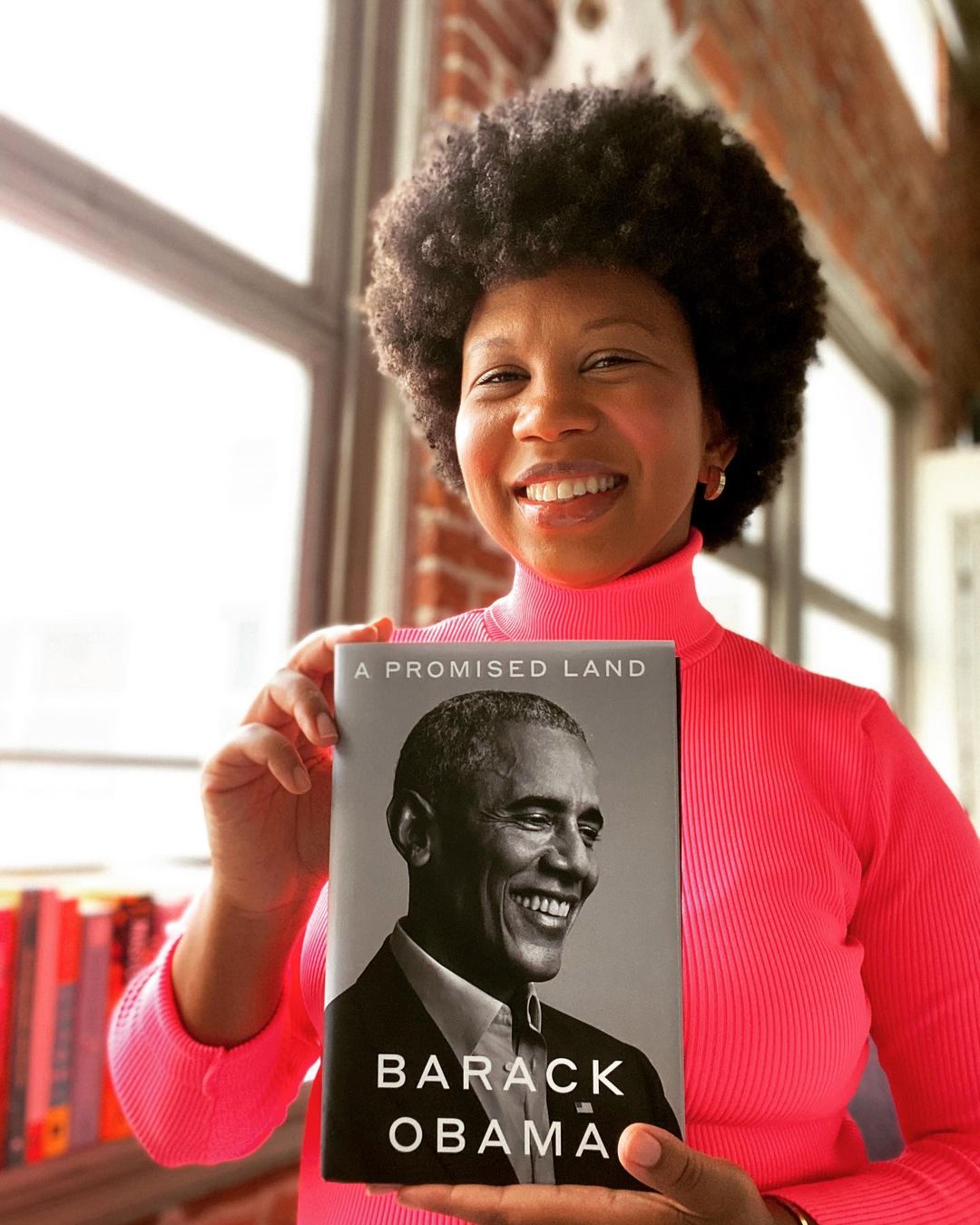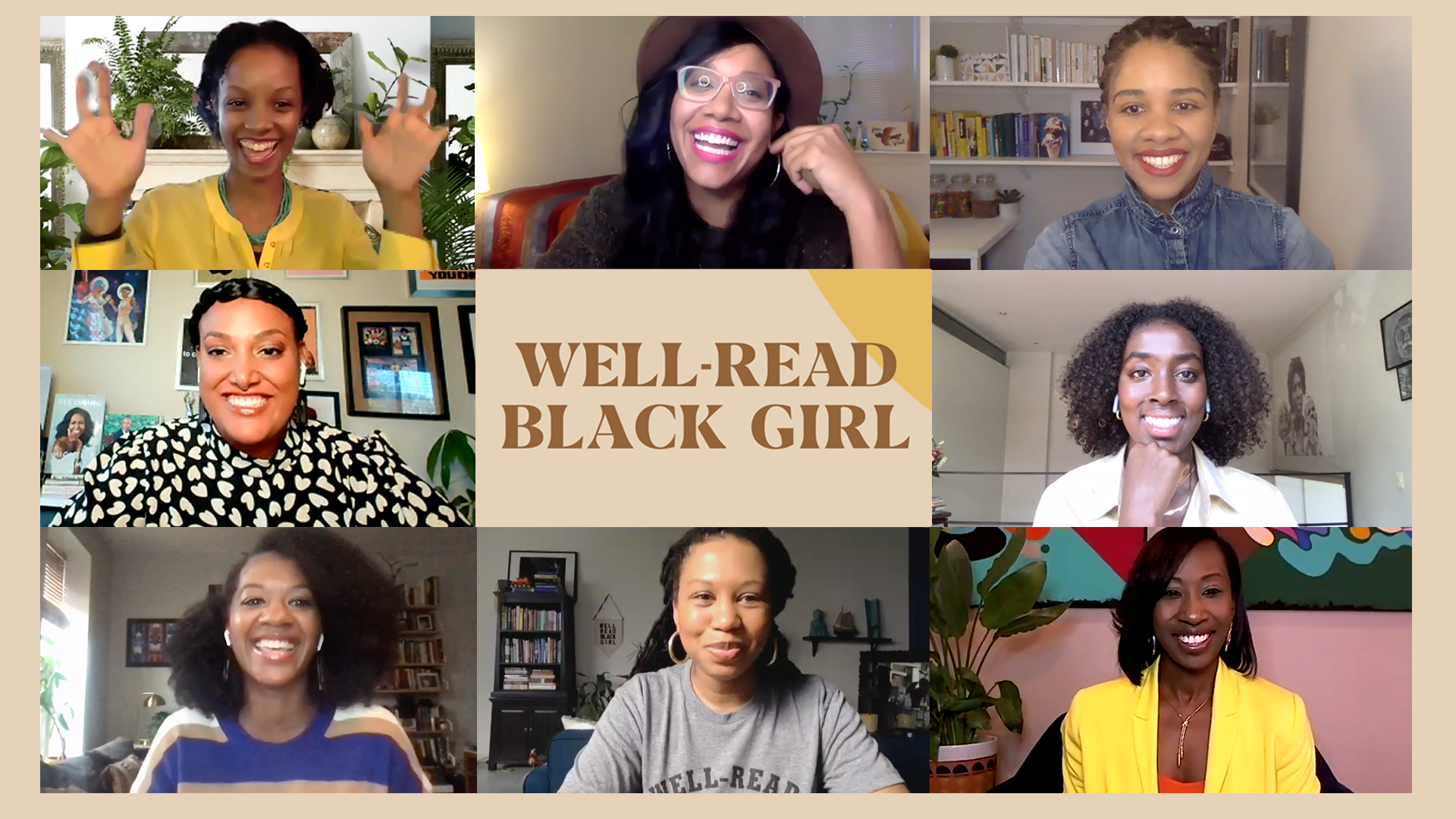Since 2015, Glory Edim, founder of Well-Read Black Girl, has curated a space for Black women and girls to engage with Black literature and each other. In nearly six years, the book club, which began as a monthly meet-up, has expanded its influence so much even former president Barack Obama talked about his newest book, A Promised Land, on the platform.
With the pandemic still impacting how we engage with one another in physical spaces, Well-Read Black Girl is taking its community virtual, currently preparing for its annual festival, which will feature remote writing workshops with Black writers. ESSENCE spoke with Edim about her growing brand, interviewing our forever president, and what it means to be a Well-Read Black Girl.

Why did you create Well-Read Black Girl?
GLORY EDIM: The origin story comes from a place of just longing and needing to see a positive reflection of myself. My mother experienced depression when I was growing up. She was an incredible mother, but at times she wasn’t able to show up fully as herself. So, when I was at the library or I was with a book, there was a sense of self-healing. Books became a sense of comfort and nurturing and love, especially as I got older.
The books that I read, especially when it came to three people in particular, [were written by] the holy trinity of Black literature: Alice Walker, Toni Morrison, and Maya Angelou. Those three women were my second mothers in literary form and they impacted how I became the woman I am today and allowed me to really think about the issues or problems that I was facing in my real world and not be ashamed.
What were some of the key books that nurtured you during that time in your life?
EDIM: I would definitely say two Toni Morisson books: The Bluest Eye and then Jazz. Jazz is one of my favorite books by Toni Morrison, just understanding and learning about the great migration and understanding the rhythm and the nuance of Black culture and how it’s shared through jazz and rhythm. The Bluest Eye— I really loved Pecola and just her vulnerability and how frail and broken she was but still very imaginative and beautiful.
I Know Why The Caged Bird Sings was a gift to me because it allowed me to embrace my voice. I love how [Maya Angelou] writes. It’s just like her truest voice. She faced critics when it came to her writing style and how she was just so fluid on the page. When you read Maya Angelou it reads as if you’re just talking, having a conversation as if she’s right next to you in your ear, telling you a secret. And then Alice Walker, I think reading the progression of her stories and how she is connected to nature and the universe. She just is so multifaceted.
How did these authors and books contribute to your identity and development as a Black woman?
EDIM: I think there is so much to be said about going deep with yourself when you’re reading. I didn’t know it at the time but what I was doing was a form of self-investigation through these books. There are so many incredible texts that tell you what it is to be a Black woman but how do you embody that and how do you put it into practice? I think of those authors do but the list goes on and on. Toni Cade Bambara and Audre Lorde fall underneath that and, if you read closely, they are giving you very clear instructions and blueprints on how to show up for yourself.
The relationship I have with my mother is beautiful and very complicated, and I think there are many other Black women and Black writers that have that feeling when family can be complicated and you need other resources to fill that void. So, [books] allowed me to have that feeling without belittling myself or ignoring the messy parts of my life, and also allowed me to acknowledge and shout the joyous parts of my life.
Why did you decide to focus on Black girls and women? What did you find was missing in the literary space for us?
EDIM: I think what we’re doing now is like really living in the Black feminist tradition of the authors that I’ve mentioned, which reminds us that anger is a powerful source of energy, just as joy is. The things that we pull from the text are what give us strength to keep on fighting and to really break through whatever obstacles we face. My call to every community member is to really just be boundless when it comes to asking the questions, being curious about revisiting your childlike self when you get to the book club. There is no question that is too complicated or too simple. Just ask with the intention of learning or unlearning something. That is the experience I want everyone to have — learning something about the book that [you] didn’t know before or learning something about [yourself] in the process.
We can make our critiques sharper and we can make our love for Black people and Black culture deeper. We have this space where we can be straight up cordial with one another, we can laugh and remind ourselves that the essence of feminism is loving other women and being in community with one another.

In November 2020, you had a conversation with Barack Obama about his book A Promised Land. How did that come about?
EDIM: The publisher (Crown) actually invited me to ask President Obama one question regarding A Promised Land when the book debuted and I said ‘yes!’ immediately. I asked him about his identity. We received a video clip of him answering the question and my video producer, Opiyo Okeyo, and I ended up creating a video. The publisher then invited us to do the book club opportunity in January for an official WRBG book club session with members.
You know, we love Barack Obama but Michelle is all the things! At the time, I had been really eager to be in contact with the First Lady when her book Becoming came out. It didn’t work out but we supported the book and definitely read it in the book club and had so many incredible conversations. We used it as a coupling with my Well Read Black Girl Anthology, looking at the idea of becoming. So to come full circle and have this conversation with her husband, the (former) President, was so exhilarating.
How did creating this book club help you and other Black women and girls find purpose?
EDIM: I think the book club has helped me relate with people who have different inner and outer lives than my own. It’s allowed me to find purpose in the act of communion and the act of generosity. I love the fact that when you enter the book club you are, hopefully, showing up in a place of curiosity and openness. That’s the space I try to live in every day, to really be open and curious about the world around me.
My purpose really lives in supporting, uplifting, and amplifying the work of Black women and Non-Binary writers. I’m mindful of not using the language of “giving voice,” because the reality is everyone has their own voice. It is simply giving space. I really want to serve as a conduit or even a midwife bringing these worlds together and use my talents to inspire and encourage future generations to do this work of archiving and reading and doing deep study and reflection. I am a writer and an editor, but I feel like I show up most as a literary advocate who wants the best for Black writers.
As an avid reader, who are some upcoming authors and writers whose work we should we be paying attention to right now?
EDIM: Off of the top of my head, I think of Shayla Lawson. Her book came out last year and it’s called This is Major: Notes on Diana Ross, Dark Girls and Being Dope. It’s a collection of essays really critiquing the life of Black Women. She talks about her personal stories but also she has these great pop culture references. The essays are beautifully done, I was really taken by her prose. In addition to that, I would say there’s so many incredible new writers that are coming up across genres. There is an author named Rivers Solomon who works in the tradition of Black science fiction. She has a new book that’s coming out called Sorrowland. I haven’t read it yet but I read her previous books and her writing is extraordinary. Her storytelling really lives in this singular vision where she recalls the work of Octavia Butler and even Maragret Atwood.
There are so many incredible non-fiction writers doing great work as well. I really loved Mikki Kendall’s book Hood Feminism: Notes from the Women That a Movement Forgot. She really opens it up and looks at white feminism and critiques it and how it could really neglect race and class and sexual orientation. There’s a quote from Malkia Devich Cyril that Mia Birdsong puts in her book, “How We Show Up,” that says “The family we make is just as important as the family that makes us.” Each year that I grow Well-Read Black Girl, I’m trying to put that into practice and be my best self because I think that’s what has allowed me to get as far as I have.